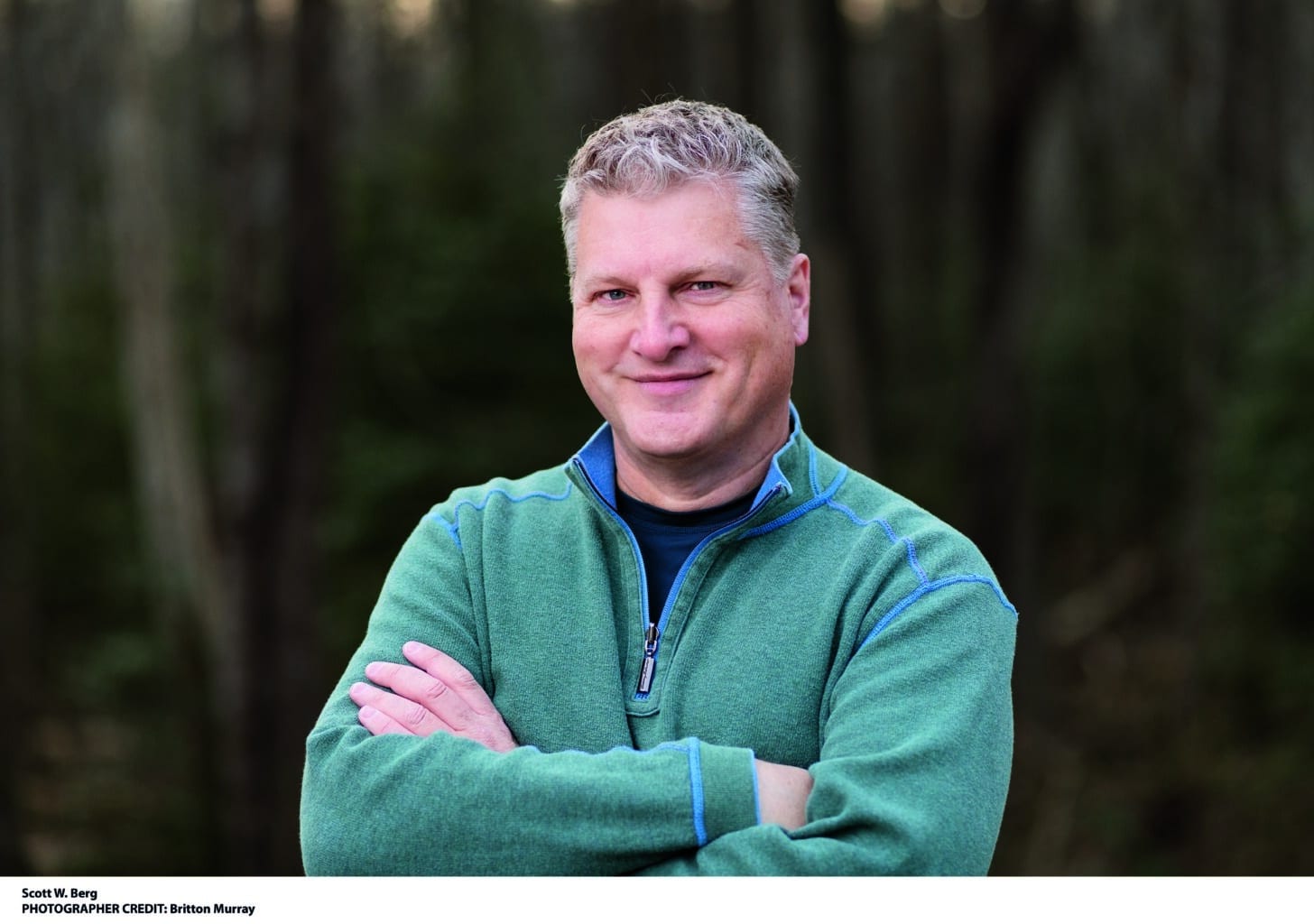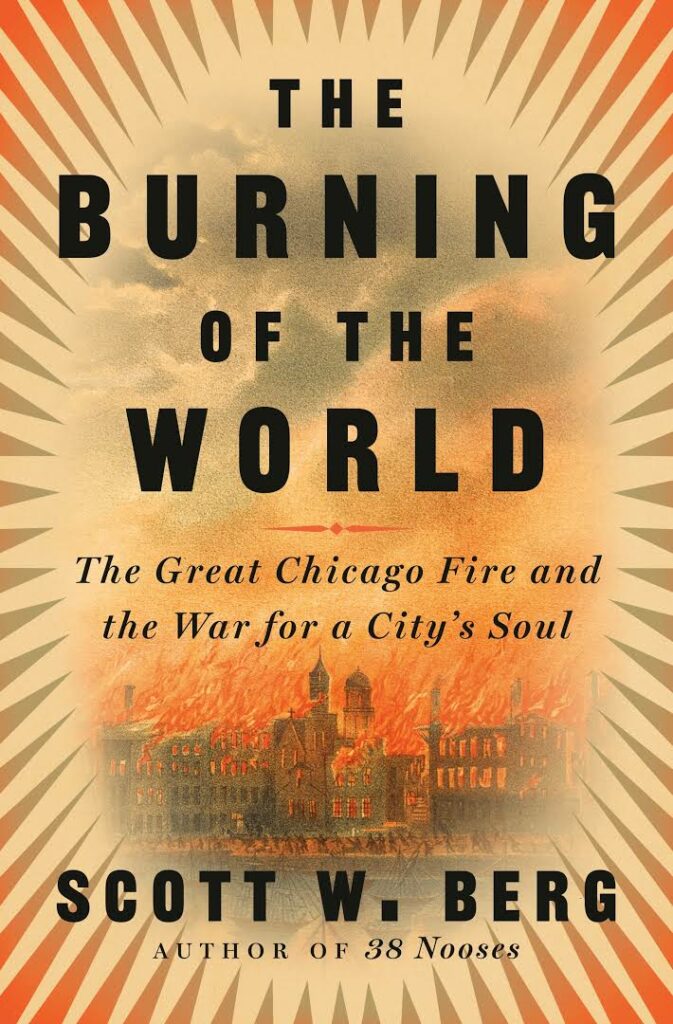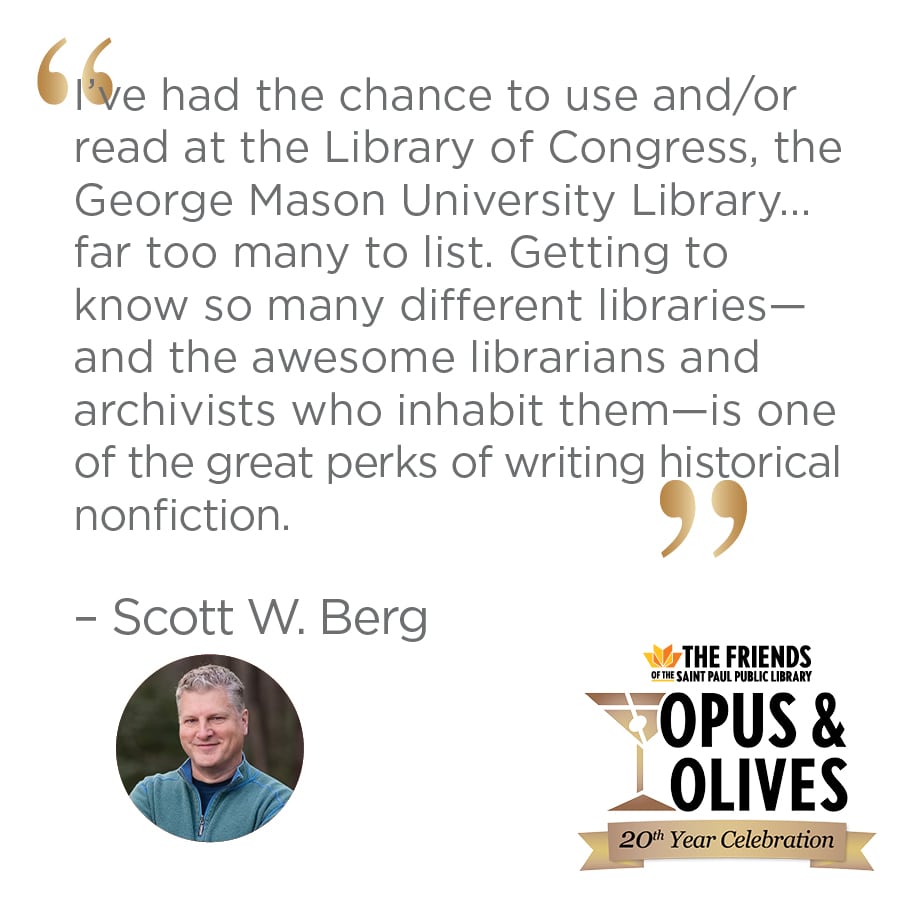
We’re so thrilled that Scott W. Berg will join us for this year’s Opus & Olives. In preparation for the big event, we asked Scott a few questions to help fans get to know him better. This is an #opusexclusive.
Tell us something that people might not know about you.
Hmmm. Probably that I’m a publisher myself: I direct the work of Stillhouse Press, a small literary “teaching press” at George Mason University, staffed and run entirely by graduate students, undergraduates, and alumni of our creative writing programs. The gulf between Random House and Stillhouse couldn’t be greater in terms of size and resources, but I’m fascinated by all the common threads that remain. The editorial process, the art and design process, the media and marketing challenges, the work of business and operations: all of that goes into every book, whoever’s producing it with whatever level of budget. It’s an interesting “double view” of an amazing, turbulent, gratifying, and ultra-important industry.
What is something you’re proud of about your book and why?

Again, hmmm. I’m probably proudest of finishing it, but that’s how every author feels about every book. In terms of the story I told, I think I’m proudest that I was able to get at some of the essentially “Chicagoan” responses to the fire’s aftermath, the bluntly confrontational and sometimes even humorous ways that business interests and laborers locked horns over the future of the city before the ashes had even cooled. And I’m also happy with my portrayal of Kate Leary, or “Catherine O’Leary” as she has been more popularly remembered. She didn’t leave a lot of historical documentation, but in her own way she has become an extremely important historical figure. I found someone enormously sympathetic and admirable under the layers of lies and myths about her role in the Great Fire.
Tell us what you love about libraries.
Now this is an easy question. Well, except that there’s not really enough space to answer. I love the architecture of libraries: the way different libraries and different branches of libraries use their physical space to accommodate in such different ways what is, in the end, just… you know… rows of books. As part of my authorial career, I’ve had the chance to use and/or read at the Library of Congress, the George Mason University Library, the Beinecke Rare Book & Manuscript Library at Yale, the Gale Family Library at the Minnesota Historical Society, the Boston Athenaeum, the Newberry Library, and on and on and on, far too many to list. And they’re all so different from one another, each one so full of its own shape, look, feel, and personality. Getting to know so many different libraries—and the awesome librarians and archivists who inhabit them—is one of the great perks of writing historical nonfiction.

Meet Scott and the rest of our bestselling lineup in person on October 8 at the RiverCentre in downtown Saint Paul!


